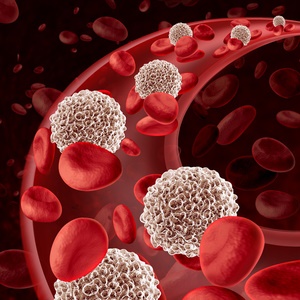
In 2017 we reported on an experimental immunotherapy cancer treatment which showed extraordinary results in clinical trials. This type of treatment is known as T-cell cancer therapy.
How exactly does T-cell cancer therapy work?
The field of immunotherapy aims to "supercharge" the body's own immune system, better enabling it to fight cancer.
T-cells are white blood cells that form part of the immune system, detecting and attacking abnormal or foreign cells in the body.
In cancer patients, T-cells normally aren't able to completely rid the body of cancer.
In T-cell therapy, immune cells are engineered to better recognise and fight cancer cells. Researchers extract these cells from blood and “edit” them with gene transfers to produce a potent receptor that can more effectively fight cancer. The cells are then placed back into the patient’s body
While this type of treatment was initially used in patients with an advanced form of leukaemia, a new breakthrough meant that T-cell therapy could be used for many other types of cancer.
What does the new research entail?
According to a news report, in 2020, researchers discovered a new immune cell receptor. This means that T-cell therapy as we know it can work much, much better and fight more cancers as it was only able to recognise a handful of cancers in the past.
This meant that, because of a T-cell receptor called human leukocyte antigen (HLA), the treatment had to be personalised for every single patient. This is the receptor that enables the cells to detect and fight the cancer.
Usually HLA varies from person to person, but that is where the new discovery could be a breakthrough.
The new study was led by scientists from Cardiff University in the UK who used the CRISPR-Cas9 screening to discover a new type of receptor called MR1. The full study can be found in the journal Nature Immunology.
These receptors do exactly what HLA does, but there is one big difference – the treatment doesn’t differ from person to person, resulting in a much better basis for T-cell therapy.
Too soon to tell, but prospect is exciting
There is, however, one caveat. The research is still very new and was conducted in a lab, which means that positive results first need to be achieved in clinical trials.
Experts remain optimistic and call this discovery an exciting new frontier.
"This research represents a new way of targeting cancer cells, which is really quite exciting, although much more research is needed to understand precisely how it works," says research and policy director Alasdair Rankin from the blood cancer charity Bloodwise, who was not involved in the research
Image credit: iStock




 Publications
Publications
 Partners
Partners















